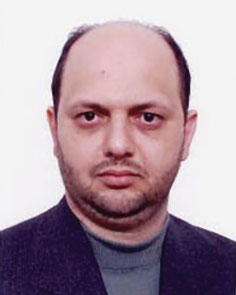Boards and Staffs
Brieflands' Board of Trustees, global scientists committed to unconditional open access, oversee policies and ensure future owners maintain standards.
Table of Contents:
CEO & Founder | |
 | Dr. Siavash Miri
|
Board of Trustees | |
| The Board of Trustees is composed of distinguished scientists from around the world. They have committed to upholding a policy of unconditional open access for research articles. Any future owner of Brieflands will also be required to maintain this policy. The Board of Trustees holds the authority to ensure these commitments are met. Additionally, they oversee all rules and regulations, assisting the policymakers of the journals. | |
 | Professor Seyed-Moayed Alavian
|
 | Professor F. Blaine Hollinger
|
 | Professor Mario Rizzetto |
 | Professor Frank Tacke |
 | Professor Ernest H.J. Weil |
 | Professor Marek J. Los
|
 | Professor Saeid Ghavami
|
 | Professor Takuya Watanabe
|
Editor Advisory Group: | |
| The Editors' Advisory Group is a representative group of Brieflands Editors who advise on scientific questions, developments, and other important issues concerning the publishing of Brieflands journals. Members are representative of the journals published across the full range of subject areas and different stages of journal development. | |
 | Prof. Ali Zarei Mahmoudabadi
|
Professor Fereidoun Azizi
| |
 | Professor Hossein Ghanaati
|
 | Dr. Vahid Ziaee
|
Editorial Management | |
| Editorial Management promotes the scientific quality and ethical conduct, reporting, and evaluation of scientific research based on the principles of trust and transparency. We tried to work with well-experienced professional journal editors with good backgrounds in research, clinical medicine, and the biological sciences. This team is responsible for maintaining best practices in peer review and leading in defining Brieflands' editorial policies, working closely with academic editors, key opinion leaders, and the Committee on Publication Ethics (COPE). | |
 | Dr. Pegah Karimi Elizee
|
 | Dr. Heidar Sharafi
|
 | Dr. Saeid Safari
|
Need to Contact One of the Members? | |
| To get in touch with any of the boards or staff mentioned above, please submit a ticket to the publisher with all the necessary details. Our colleagues in the Support department will evaluate your request and respond at their earliest convenience. You can submit your inquiries via the "Submit a Ticket" option on our support portal or by navigating to one of our journals > Support > Submit a Ticket. | |